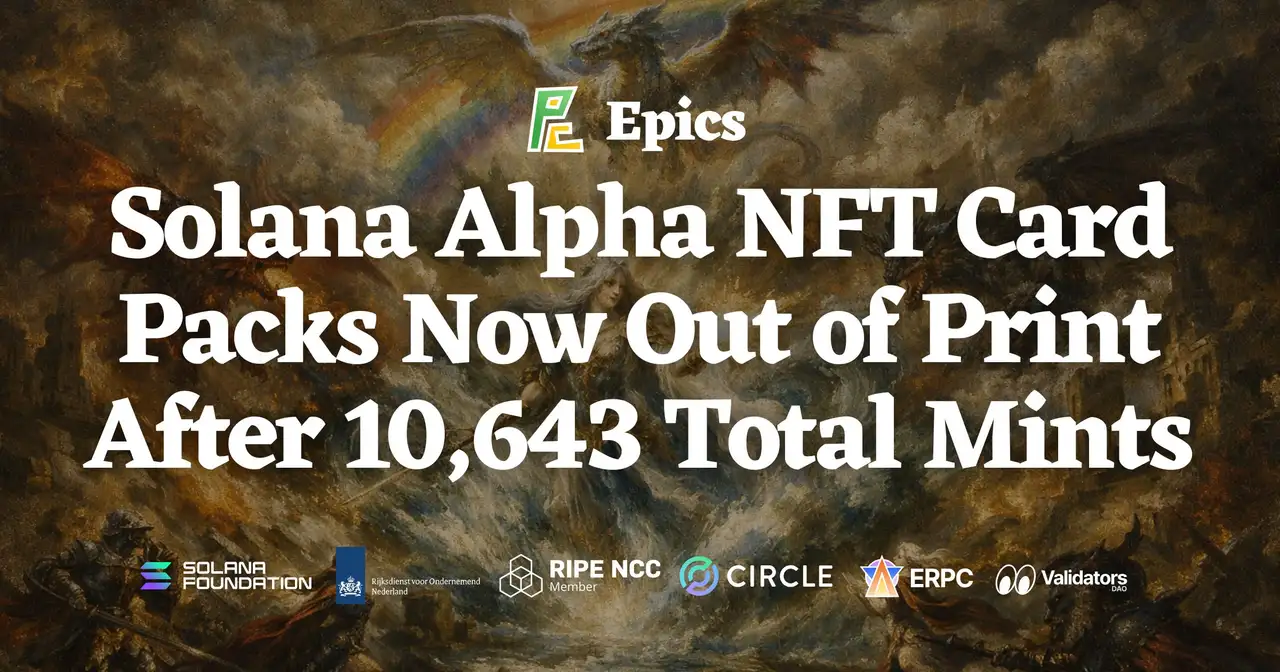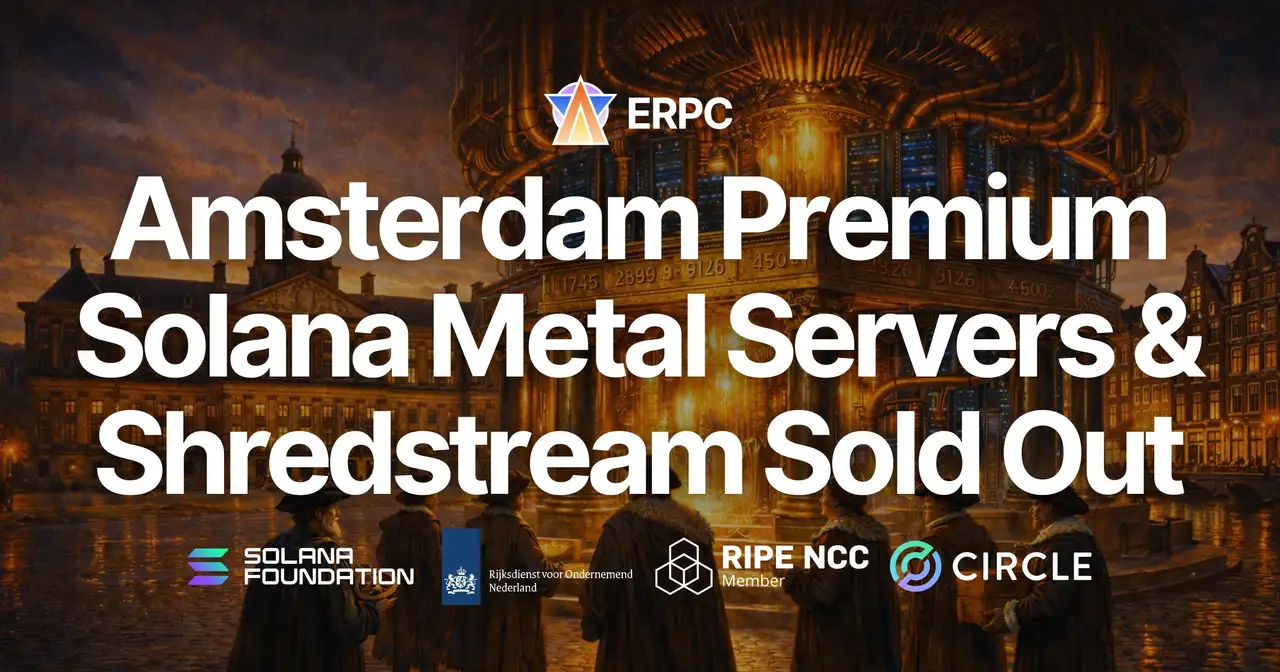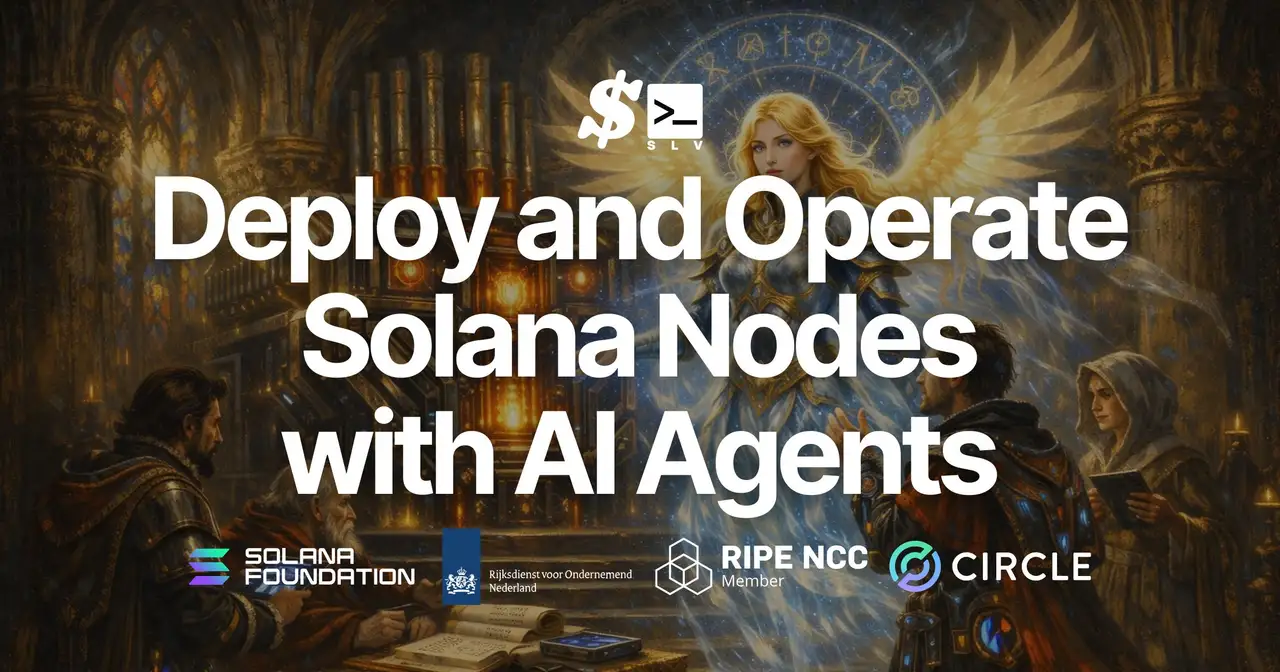SLV Casts a Yes Vote on the Ongoing Public Proposal to Adopt the Solana Alpenglow Consensus and Fully Supports the Migration
SLV Casts a Yes Vote on the Ongoing Public Proposal to Adopt the Solana Alpenglow Consensus and Fully Supports the Migration
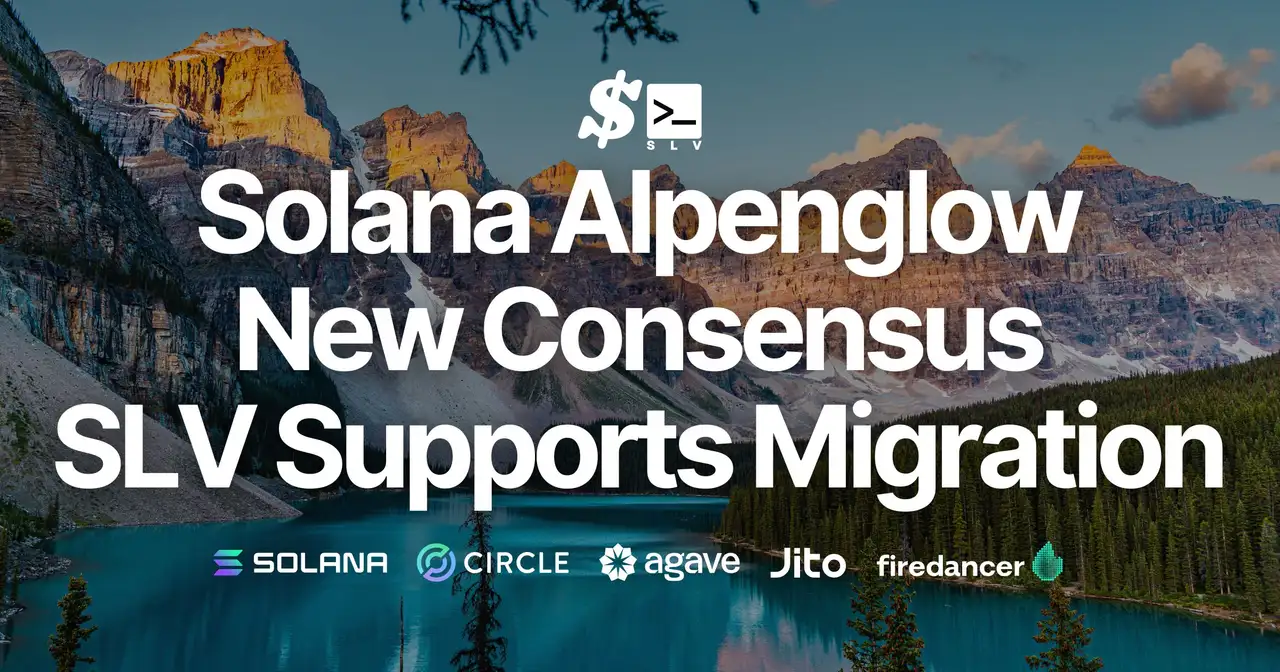
ELSOUL LABO B.V. (Headquarters: Amsterdam, Netherlands; CEO: Fumitake Kawasaki) and the Epics DAO it operates have cast a yes vote on the ongoing public proposal among Solana mainnet validators to adopt the new “Alpenglow” consensus.
In parallel, we will comprehensively support the migration through our open-source validator operations platform, SLV.
Community Sentiment and Outlook
Taking into account discussions on developer forums, technical explanations from various parties, and the spread of public statements for and against, consensus is likely to be reached. While the final decision depends on the official tally, we support this direction and have already begun practical preparations on the assumption of migration.
Latency Reduction with Alpenglow and Solana’s Evolution
Alpenglow incorporates the latest research in consensus. It is expected to reduce block finalization from roughly 12.8 seconds to around 100 to 150 milliseconds. This near 100x reduction directly improves perceived application performance and pushes Solana forward as an even faster, more developer-friendly platform.
Migration Support Provided by SLV
In Solana validator operations, operators are expected to handle daily tasks such as client configuration, monitoring, updates, and cutovers. SLV automates these day-to-day operational tasks, delivering standardized configurations and consistent operational quality.
Originally developed as “solv” by Epics DAO, the project has since evolved under Validators DAO into SLV.
In the past, validators had to develop and maintain their own scripts and revise procedures with each update, but with SLV the same work can be completed with one command.
With SLV, those tasks complete with one command. This reduces the server expertise required to get started and lowers both learning costs and network-wide operational costs. Validators can leave validator operations to SLV and devote more time to building applications on Solana.
Practical Benefits for New and Existing Validators
Validators who understand operations will feel SLV’s value most clearly. It correctly automates repetitive tasks and minimizes the adjustments that arise with each update.
In practice, depending on the version and situation, validator software may not be readily distributed, and a self-build in a specific environment may be required. Recently, even updating to the Solana testnet client Agave v3 required a self build. With SLV, you can finish with one command and not worry about it.
That one command also includes performance-optimization settings, automatically putting you in an optimal state at the time of installation. This reduces operational load that tends to consume time, while also aiming for performance gains.
For validators who have been short on bandwidth, simply adopting SLV makes it easier to free up time and can further improve performance.
New validators also benefit greatly. You can get up and running quickly with the right defaults and reproducible procedures, while keeping initial learning costs down. Thanks to the one-command onboarding experience and automated operations, day-to-day work becomes simple, and resources can be redirected to core product development and community contributions.
Even with frequent client updates, there is no need to look up complex procedures each time. Applying SLV updates keeps you current.
Safe Zero-Downtime Operations Grounded in Experimentation and Learning
Many aspects of stake allocation and delegation behavior, as driven by decentralization metrics, can only be understood through observation in live operations. Therefore, it is important to be able to repeat a phased workflow in which you temporarily bring up a new node at the right time, test under varying conditions, and switch over with zero downtime.
Automated workloads and a stable foundation for zero-downtime migration are the prerequisites for this cycle.
SLV provides one command for deploy, update, and cutover, and applies performance optimizations at onboarding, enabling you to prepare test environments quickly and accelerate the validation cycle.
This makes it easier to avoid delegation and revenue loss caused by downtime, while allowing you to run the required tests as many times as needed.
In addition to high-performance validator configurations, we have conducted many experiments, often at the expense of rewards and revenue, and at times we have even experienced downtime in order to establish this safe zero-downtime migration environment. Real-world operational experience is the most effective way to prevent incidents in advance, and the resulting learnings are fully incorporated into SLV as standard procedures.
By reflecting and publishing these standardized results of experimentation and learning in SLV, anyone can quickly reach the same level of migration and operations without repeating the same mistakes.
Toward Network-Wide Quality Improvements
Solana’s operational quality is the sum of each validator’s operational quality.
SLV shares high-quality procedures as open source so that anyone can reproduce the same level of operations. As a result, it contributes to network-wide latency reduction and stabilization.
Hardware and Location Optimization
To maximize SLV’s optimized settings, Validators DAO provides dedicated bare-metal servers suitable for Solana validators and RPC. Proximity to major network hubs delivers stable connectivity and consistently full turbo for the fastest responsiveness.
As software evolves, differences in hardware quality translate directly into outcomes. We propose the optimal configuration for your objectives.
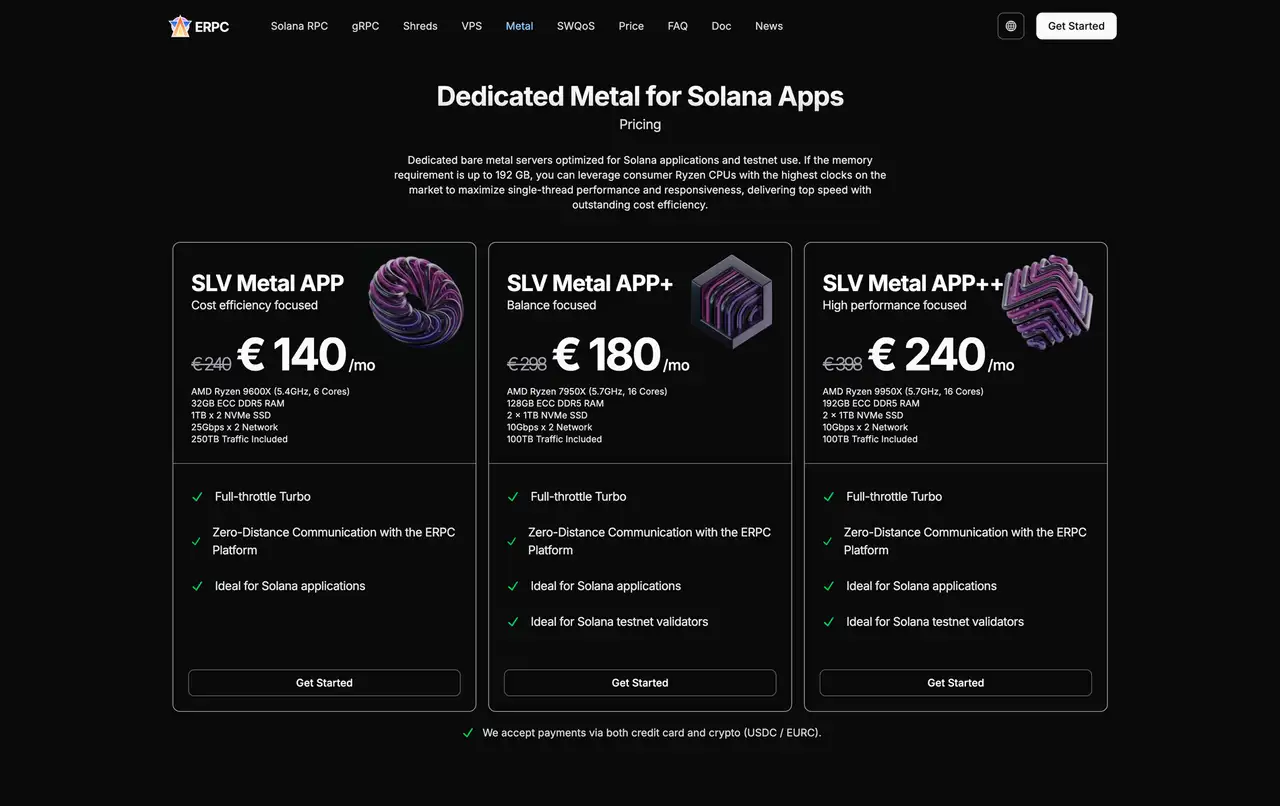
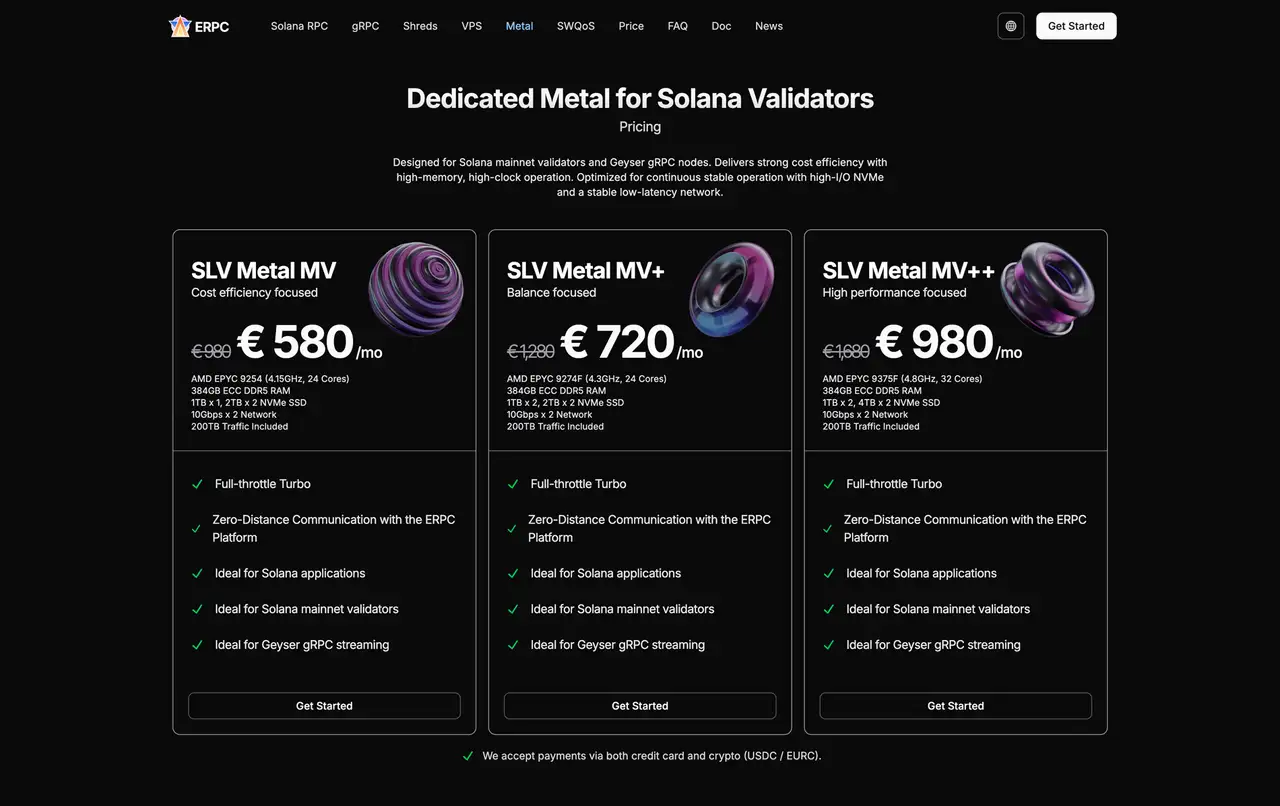
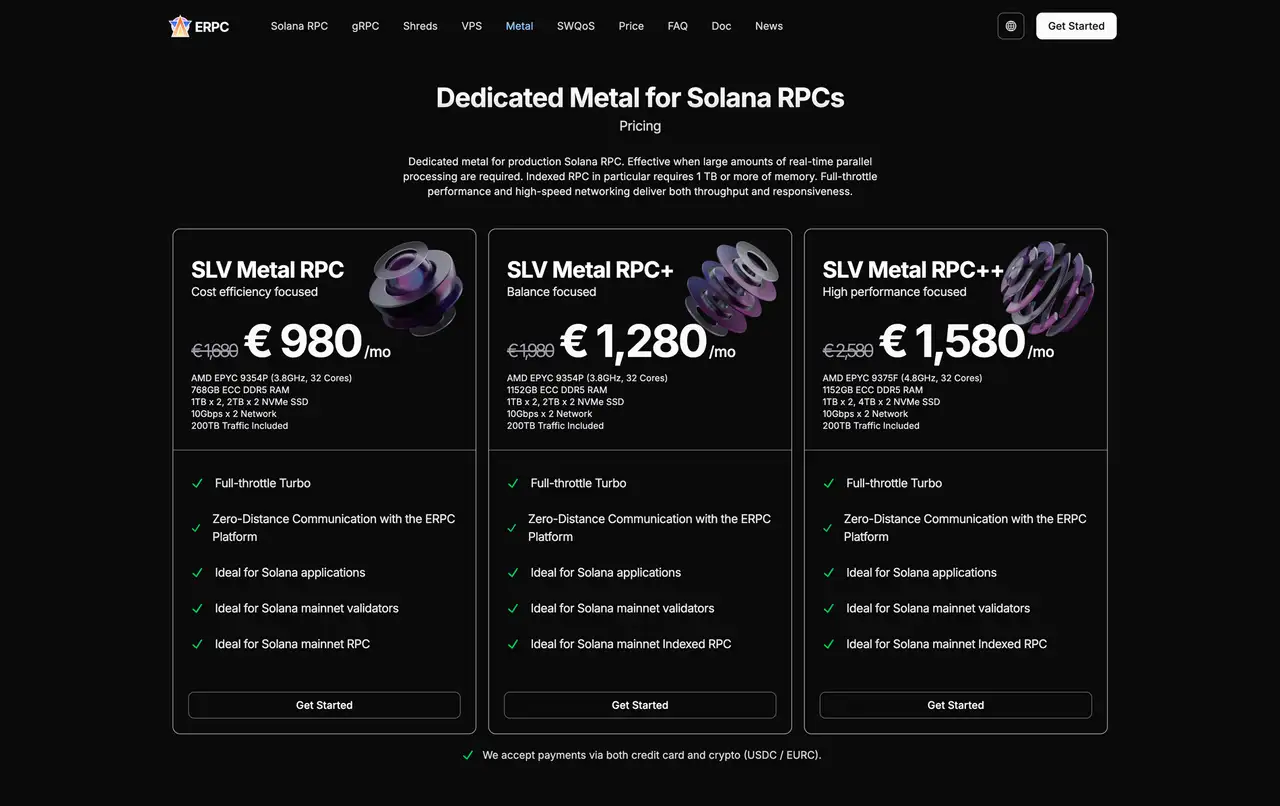
Resources can be purchased via the Validators DAO Official Discord. We also accept inquiries about onboarding and migration.
Voting Information and References
SIMD-0326: Proposal for the New Alpenglow Consensus Protocol: https://forum.solana.com/t/simd-0326-proposal-for-the-new-alpenglow-consensus-protocol/4236
ELSOUL LABO Vote:
https://solscan.io/tx/3UhyTYucZGgP7esjbzJ8feHPY4H9f6ccCrPuEmvd1fSPpp49A8MJWskxehkhqfuD1gKrDVC6roMYrgJ5hZuN93y3
Epics DAO Vote:
https://solscan.io/tx/48eJRm1pfEaVqgr5Z9HQechEZarn8gKnmxTeEKVW7LBv16o4kziNwBMTY7y6sm86YYd74fBQaJZmNieCvMdts3DE
Based on community discussions and observed voting, we assess that agreement is largely forming and the likelihood of passage is high. The final decision depends on the official tally, but SLV will continue preparations to ensure stable operations and maximum performance after migration.
Note that the scope of this ballot covers finalization and the voting logic (Votor). Data dissemination via Rotor will be handled in a subsequent SIMD.
Contributing to Open Source
SLV is an open-source project that continues to evolve. We welcome contributions such as advanced configurations, new features, and documentation improvements.
Let’s work together to advance Solana’s decentralization and performance. The latest updates are shared via the Validators DAO Official Discord.


